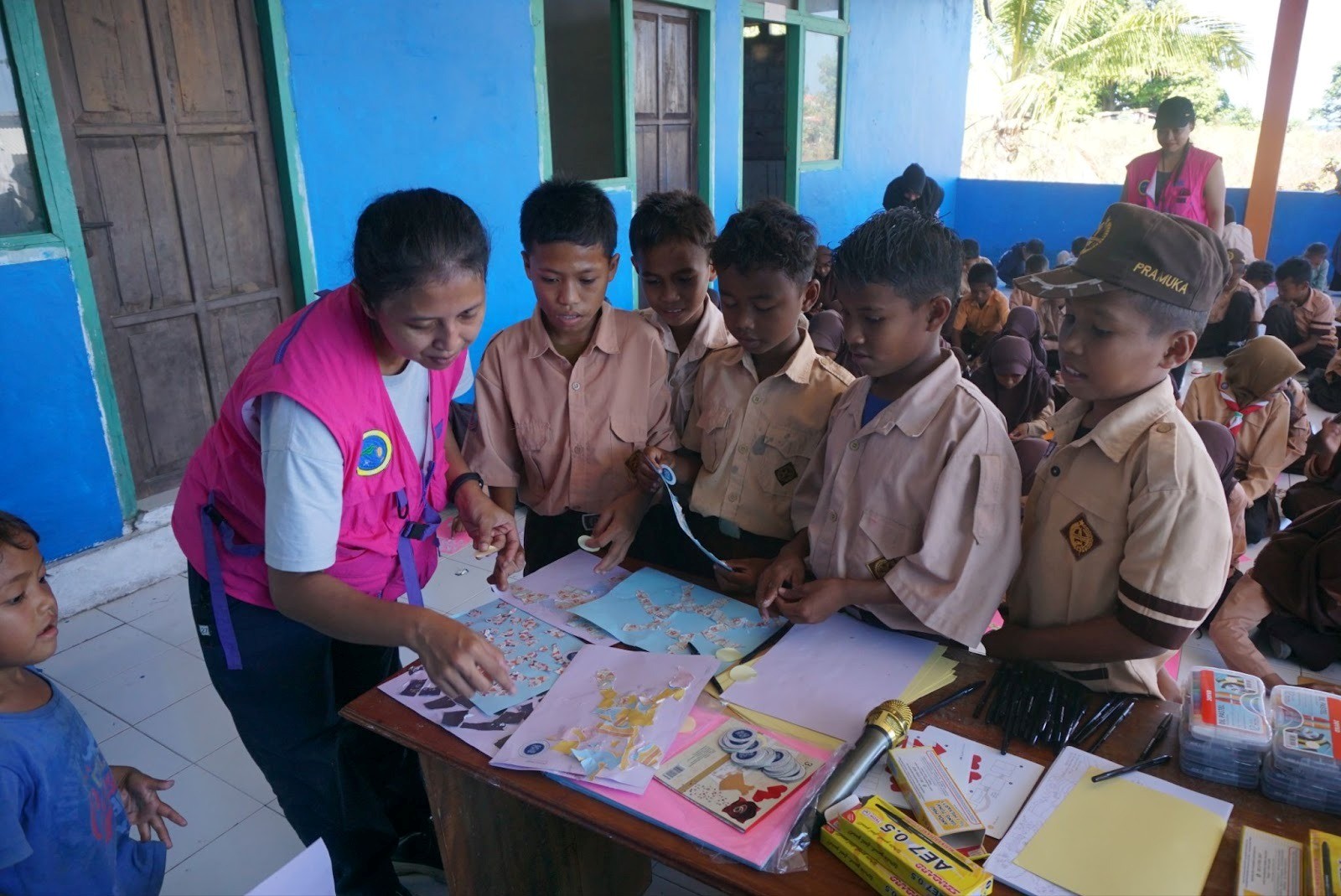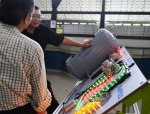The Rector of ITB Brought Graduates to See the Future of the World
By Muhammad Arief Ardiansyah
Editor Muhammad Arief Ardiansyah

BANDUNG, itb.ac.id – Institut Teknologi Bandung held the third graduation ceremony in 2016/2017 academic year. Similar to the previous ceremony, Prof. Dr. Ir. Kadarsah Suryadi, DEA delivered a speech in front of the graduates, their families, and invited guests. The speech on Saturday (22/07/17) at Sasana Budaya Ganesa Hall is titled “Observing and Preparing the Future”. Through his speech, Rector of ITB brought the audiences to observe the future using data and facts.
The speech began with explanation from Prof. Kadarsah about the opinion of experts regarding the future of the world. He quoted Daniel H. Pink, a famous writer in 21st century who was also the Executive Deputy Producer of National Geographic. On his book, A Whole New Mind: Why Right-brainers will Rule the Future, the world is divided into 4 development eras, namely: (1) agrarian era, (2) industrial era, (3) information era, and (4) conceptual era. We are currently moving to conceptual era from information era with emphatic and inventive, economic and community development.
Persisting Technology in the Future
 Quoting a report by Forbes in 2016, Prof. Kadarsah mentioned several technology predicted to be dominant up to the future. The first ones are IoT (Internet of Things) and smart home tech, an expansion of internet connectivity and smart house technology. These technologies, for example, are smart building that auto-optimize its energy, smart lamp that auto-control the lighting with current weather, and refrigerator that tell its contents to owner using only internet connection or SMS.
Quoting a report by Forbes in 2016, Prof. Kadarsah mentioned several technology predicted to be dominant up to the future. The first ones are IoT (Internet of Things) and smart home tech, an expansion of internet connectivity and smart house technology. These technologies, for example, are smart building that auto-optimize its energy, smart lamp that auto-control the lighting with current weather, and refrigerator that tell its contents to owner using only internet connection or SMS.
The second ones are AR and VR (Augmented and Virtual Reality). These technology combine the real and virtual world, enabling someone, for example, to have a trip to snowy regions from inside his home or to try many clothes online without the need to physically touch the clothes. These technologies that we can widely find in games are used widely in medical and military world.
Other technology predicted to be dominant up to the future is Physical – Digital Integration. The Rector mentioned 3D printer which enable production in real, not a mere 2D image. “imagine that now houses are printed and not built, just like in China, Netherlands, USA, Switzerland, Dubai, etc. Maybe one day ‘building house’ will change to ‘printing house’,” said the Rector, smiling.
The Issue of Future World
 Besides discussing the development of technology, Prof. Kadarsah also mentioned some issues on current world predicted to persist up to the future. Those issues are food, health, energy, and environment. These four issues was written in a plaque by Prof. Robert Huber (Nobel Laureate in Chemical in 1998) when he visited ITB in 2011. On the plaque—placed in Chemical Building, FMIPA ITB—he wrote, “Food, energy, health, and environment are the huge challenge for mankind, but we have a capacity for a solution – it is in the brain our young people.”
Besides discussing the development of technology, Prof. Kadarsah also mentioned some issues on current world predicted to persist up to the future. Those issues are food, health, energy, and environment. These four issues was written in a plaque by Prof. Robert Huber (Nobel Laureate in Chemical in 1998) when he visited ITB in 2011. On the plaque—placed in Chemical Building, FMIPA ITB—he wrote, “Food, energy, health, and environment are the huge challenge for mankind, but we have a capacity for a solution – it is in the brain our young people.”
The Rector took an example from a vogue energy issue, the fuel cell. The cell uses electrochemical process on water to generate hydrogen cell for fuel. “If hydrogen is obtainable from water with sufficient efficiency, it could be an alternative energy and could open a new job opportunities. Therefore, wealthy country in the future would be a country with vast water territory. We are blessed that Indonesia has 70% water out of the total territory,” explained Prof. Kadarsah followed by applause from the audiences.
Final Message for the Graduates
 With this challenging technology development and future issues, ITB graduates are expected to give significant contribution to community in the future. “I remind you that to face the future we need more than just ratio. We also need sense, body and religion as important capitals,” said the Rector to the graduates.
With this challenging technology development and future issues, ITB graduates are expected to give significant contribution to community in the future. “I remind you that to face the future we need more than just ratio. We also need sense, body and religion as important capitals,” said the Rector to the graduates.
“Keep working and be a leader for you, your family, the environment and the people. Keep walking on the right track. Hopefully our good intention will make wide benefit for the community and grace to the whole world and be blessed by God,” concluded Prof. Kadarsah.

.jpg)
.jpg)


.jpg)



